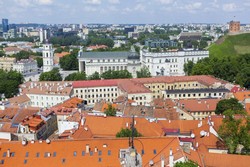Growth for Vilnius molecular biotechnology facility
The IBT is known for its contribution to the field of molecular biotechnology. Long-term goals for the IBT include integration into the European Research Area (ERA) and a strengthened research capacity. The EU-funded MOBILI (Strengthening and sustaining the European perspectives of molecular biotechnology in Lithuania) project was a Support Action focused on improving capacity. It achieved this by developing human and physical resources and also through networking with other institutions. A major theme was exchange of knowledge and experience. MOBILI organised visits by 76 IBT researchers to partner agencies. Additionally, the project arranged 24 reciprocal visits to IBT, focusing on young researchers and particularly from nearby new EU Member States. The visits resulted in significant work towards the completion of four PhDs, plus considerable cooperative research with partner universities. Visiting researchers also participated in IBT's international seminar programme. MOBILI recruited two group leaders, resulting in the expansion of IBT's research profile. The project also brought on five experienced researchers. Collectively, the new appointments helped attract new PhD students, and the student pool increased three-fold over three years. All recruited researchers were still working at IBT as of the project's end. An additional project theme was equipment upgrades. MOBILI arranged several significant purchases, including specialised biotechnology equipment, a high-performance computing cluster and a universal X-ray diffractometer. The new tools helped establish the only X-ray crystallography research unit in the Baltic region. A total of 54 IBT research staff participated in various international conferences and workshops. The project also obtained one patent and applied for seven others. The team produced 98 papers co-authored with EU partners. MOBILI support was acknowledged in 11 open-access journal publications and five journal papers. MOBILI helped IBT strengthen its interactions with EU research teams, and otherwise upgraded the Institute's research infrastructure. Such outcomes helped launch new biotech spinoff companies, and have contributed to Lithuanian economic and social development.



